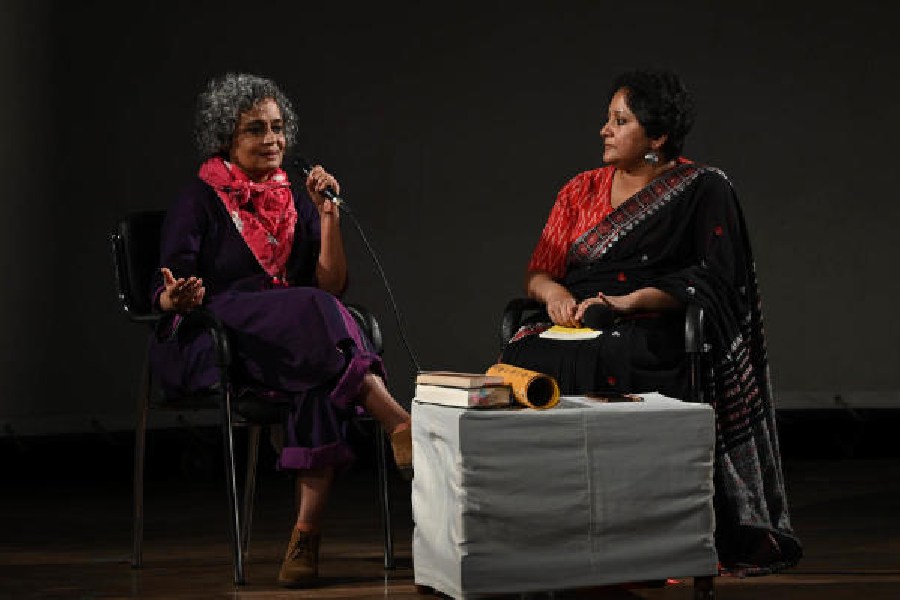Arundhati Roy, author and political commentator, delivered the keynote address at the 10th edition of the Kolkata People’s Film Festival at a south Kolkata auditorium on Thursday.
Excerpts from her address.
Centralised Hinduism
The Ram temple inauguration was a “centralisation of Hinduism”, Roy said.
“I think it is going to take all of us, including me, a little time to really know what has happened to us and what will happen to us and how we are to live in this new era. What happened on January 22 was also — like what is happening politically everywhere else — a centralisation of Hinduism. One God, one ruler, one party, one nation, one election, one language but one thousand castes,” Roy said.
The session was titled “The Assault on Meaning: The Challenges of Being a Writer Today”.
The moderator, Kasturi Basu, an organiser of the festival that turned 10 this year, asked Roy what she made out of the frenzy and hype that the country witnessed in the run-up to the consecration of the Ram temple in Ayodhya on January 22.
“Obviously, it was the culmination of a political campaign which has not very much intrinsically to do with religion. But we cannot minimise and we mustn’t minimise the impact that it is having psychologically on people. If you look at what is going around in north India, about fake news. It is a collective, psychological capture. We would minimise that at our peril,” Roy said.
The Uttam Mancha auditorium, with a capacity of over 500, was packed to the hilt, breaking into an applause every now and then, as she spoke.
Irony
Roy read excerpts from her address, The Graveyard Talks Back, at the 2020 Clark Lecture in English Literature, instituted by Trinity College, Cambridge.
One of them spoke of an irony, that lower-caste Hindus who converted to Islam to escape caste-based oppression, were now being termed outsiders who ruled India for a long time.
“To escape the tyranny of Brahminism over the centuries, millions of Dalits and people from other subjugated castes converted to Islam, Sikhism and Christianity.... So, the politics of Hindu majoritarianism and its persecution of minorities is also intricately intertwined with the question of caste... yet so many celebrated writers, historians, philosophers, sociologists and filmmakers have collectively managed to produce a formidable body of work on India... that either turns caste into a footnote or completely elides the issue. I would call that fake history, too. The great Project of Unseeing,” she said.
Throughout the lecture, Roy explained how the meanings of words like democracy and oppression were being subverted so that perpetrators of offences claimed victimhood.
